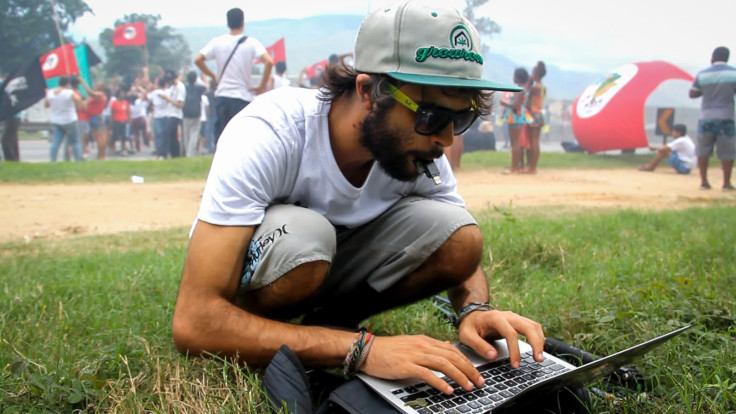Black Code documentary film exposes the digital espionage carried out by governments
New film highlights how activists are using social media and smartphones to fight oppressive regimes.

A documentary film which screened at London's Human Rights Watch Film Festival has opened up the secretive ways in which repressive governments control their citizens. Director Nicholas De Pencier has brought together stories from all over the world, including Tibetan monks taking on the might of China, Syrians tortured for Facebook posts as well as Pakistani online violence against women.
The hero in the story is Ronald Deibert, director of the Citizen Lab, which is based in the University of Toronto. The organisation is best known for uncovering GhostNet, a cyber spy ring used by China to hack into political and media outlets in 103 countries around the globe.
"Cyberspace is all around us. We depend on it for everything we do. We have reengineered our business, governance, and social relations around a planetary network unlike any before it," Deibert says. "But there are dangers looming, and malign forces are threatening to transform this extraordinary domain."
According to Deibert, the documentary's title, Black Code, refers to "the growing influence of national security agencies, and the expanding network of contractors and companies with whom they work".
For political activists living under repressive regimes, mobile phones are often the only means they have to record police violence and unsanctioned arrests.he material is uploaded directly on to the website of MidiaNINJA, a group of citizen journalists in Brazil via TwitCasting. This enables streaming live video on Twitter and Facebook before police can confiscate, smash phones or destroy evidence. The Japanese app was previously best known for
The material is uploaded directly on to the website of Midia NINJA, a group of citizen journalists in Brazil, using the TwitCasting app, which enables live video to be streamed to Twitter and Facebook before police can confiscate, smash phones or destroy evidence. The Japanese app was previously best known for teenagers sharing karaoke clips, but journalists in Brazil used it for a very different purpose.
Live footage was used to free a demonstrator who had wrongly been accused of throwing a Molotov cocktail at police which left one officer badly burned. By sending out a tweet, Midia NINJA asked people at the demonstration to send their videos and photos to prove that the protestor was innocent of the crimes. More than that, they uncovered the real perpetrator, who was an undercover cop.
One of the most frightening issues the film brings up is the amount of money that developing countries are spending to spy on their citizens. An Ethiopian political activist who now lives in the UK said that his country was spending large sums to track down activists, journalists and lawyers.
"There were no suspected terrorists on that list," he said at a London screening of Black Code on Friday (10 March). "Very expensive surveillance tools are used as well as UK infrastructure to spy on citizens."
De Pencier also highlighted the "psychological narrative such as 'tricking' people into clicking on images. It plays upon people's fears, willingness to share and their curiosity".
© Copyright IBTimes 2025. All rights reserved.






















